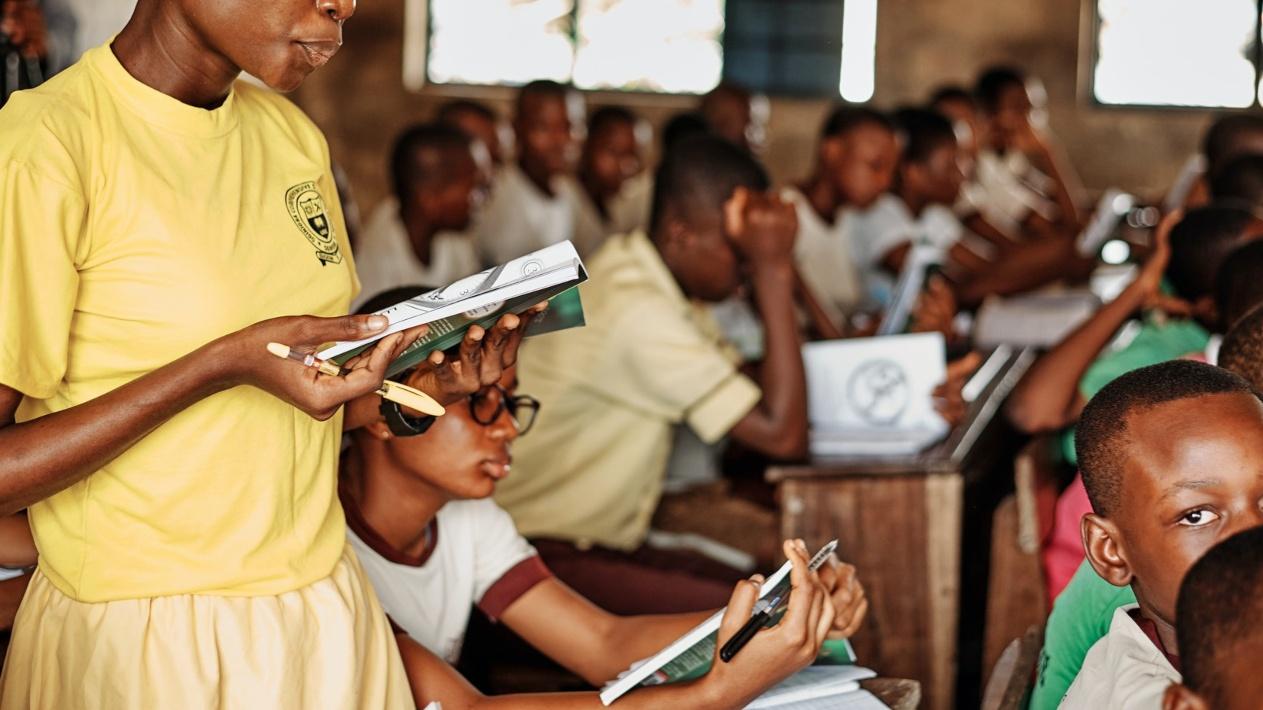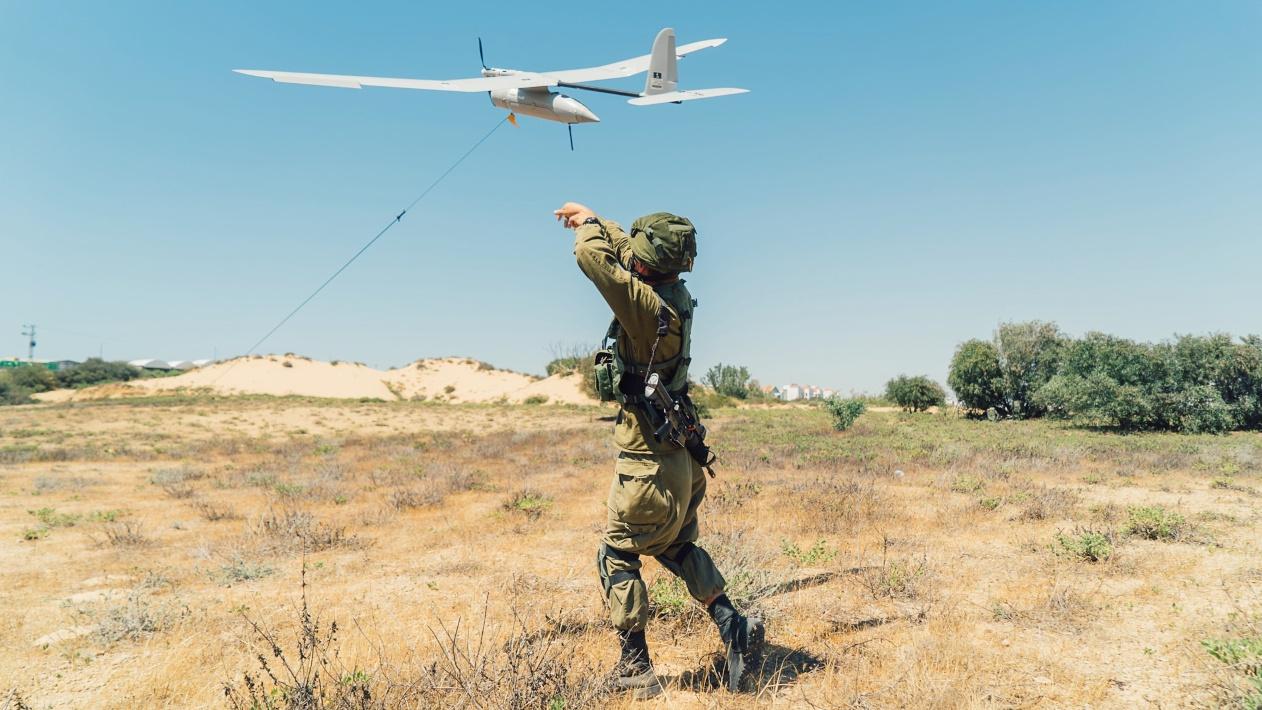Armed banditry is continuing to cause security concerns in northwest Nigeria. Regular attacks against civilians and officials alike, persist at a challenging time. With the 2023 presidential elections around the corner, violence threatens voter registration, and fears of election day intimidation ensue. Uche Igwe addresses the causes of ongoing insecurity and assesses President Buhari’s legacy, as he prepares to leave office.
It was a calm evening in Abuja, yet an air of palpable tension hung over the city. News of an attack had filtered in, perpetrated close to the scene of a previous one, at Madalla-Zuba axis. Assailants struck a community in Kwali, forcing parents to evacuate their children and spreading panic.
I found myself on the unusually desolate Ahmadu Bello Way, with few cars and even fewer pedestrians around. Soon into the journey, I asked my driver to turn and stop at the farmers market in the wealthy Maitama area, before heading off to Area 2 mini-market off Moshood Abiola Way. It was with a mixture of caution and curiosity that I quickly bought some fruits for the week.
Anxieties persist as citizens register to vote
My driver, Benjamin, confirmed something was amiss. “Do not mind them; it is these so-called bandits terrorising the city. They want to instil fear in us so we will not come out to vote. But they will fail this time.” He was quick to link the deserted streets to the forthcoming elections. Recently, city residents have witnessed many attacks like the one he spoke of. Reports indicate that over a hundred security personnel were killed in early 2022. Criminals are becoming increasingly audacious; they have attacked military checkpoints and threatened to kidnap President Buhari.
I struggled to see the connection between the ongoing insecurity and upcoming elections. Benjamin explained that he had travelled two hundred kilometres to Nasarawa State in order to register to vote.
The frequency of successful attacks and violence deployed is a concern for citizens at home and abroad. With Nigeria due to hold elections next year, there are fears that insecurity will affect their outcome. Young Nigerians may be enthusiastic about participating in democracy, but criminal groups intend to prevent this. Hopes of potential voters will be dashed; insecurity will deter voter turnout, creating opportunities for election rigging and manipulating results.
Petty criminality is encouraged by bad governance
The origin of banditry is as contentious as the rapid spread of the groups’ operations. Accounts link the early appearance of armed banditry to the clashes between vigilante groups and herders in Birnin Gwari, Kaduna State and Tsafe, Zamfara State. There, the vigilante groups were formed to support law enforcement in communities to counter petty criminality.
In many communities in northern Nigeria, Hausas and Fulanis see themselves as one, as they share some cultural and religious similarities. By coincidence, most members of the vigilante groups were Hausas, while those regarded as criminals were from the itinerant ethnic group As the two groups fought, the notion of law enforcement combatting criminality and cattle rustling was replaced by one ethnic group targeting another.
Zamfara State authorities initially supported the vigilante groups with motorcycles and logistical assistance, efforts that have been misinterpreted to justify the bandits’ attack on state facilities.
The introduction of Sharia Law was politicised and not sustained
Some criminal groups temporarily withdrew in late 1999 after Sharia Law was introduced, and cattle theft was punished by the amputation of arms. The implementation of Sharia failed; notable Islamic scholars like Mohammed Sanusi II, described the introduction of Sharia as mere political discourse used by some politicians to assume power.
However, in 2011, armed banditry resurfaced. One group, led by notorious Buhari Tsoho, better known as Buhari Daji (Buhari of the bush), funded operations by cattle rustling. Some who joined him considered their participation in the armed group a cultural association aimed at liberating Fulanis from highhanded security agents, traditional rulers and politicians. Buhari Tosho attracted nomadic Fulanis who travelled far through the bush from Chad after the civil war, from Guinea and the Central African Republic.
Multiple actors exacerbating tensions
In Kaduna, the clashes between vigilante groups and bandits mirrored a conflict between Christians and Muslims. Rather than support the vigilante groups, the state government paid Fulanis to stop the killings. These efforts, however well-intentioned, provided an incentive to frame attacks against banditry as one targeted at the ethnic group instead, which saw continued retaliatory killings as a form of revenge against their perceived injustice.
Authorities traced Fulanis all the way to Niger, Cameroun and Senegal, providing them with compensation and resources; when weapons flowed through Nigeria’s porous borders from Libya, violent herders were able to purchase more arms.
The role of political actors in Zamfara and Kaduna in particular, and northern Nigeria more generally, directly impacted how the conflict is perceived. This perception of injustice against Fulanis helped to fuel tensions, especially around the Zamfara and Katsina axis. It mobilised sentiments regionally to attract Fulani sympathizers and volunteers from Mali, Senegal, Guinea, and the Sahel. This created an opportunity for extremists, ethnic bigots and criminals to unite and secure legitimacy. Alongside the spread of terrorism in the northeast, Boko Haram and Islamic State West Africa Province (ISWAP) defectors retreated to the northwest, where one attack left more than 200 dead and communities fear the dual threat of banditry and terrorist fueled violence.
President Buhari’s security legacy
Despite official claims to the contrary, the fight against banditry is ongoing. At the end of his tenure in May 2023, President Buhari is expected to retire to his home state in Katsina or nearby Kaduna, both insecurity hotspots. Unless something is urgently done, the President’s retirement may be marred by security fears. Parliamentarians have recently pushed for Buhari’s impeachment due to his failure to address insecurity.
Attacks have been launched with success and precision; violent criminals struck a government-owned mass transit bus, killing and abducting passengers. Indeed, the President’s advance convoy was ambushed on its way to Daura. The continued aloofness of President Buhari and the inaction of security agencies suggests that the security challenges in Africa’s biggest economy may endure.
Photo: Member of Lassa vigilante group. Credit: Immanuel Afolabi. Licensed under CC BY-NC-ND 2.0.






Interesting read. Very well articulated.